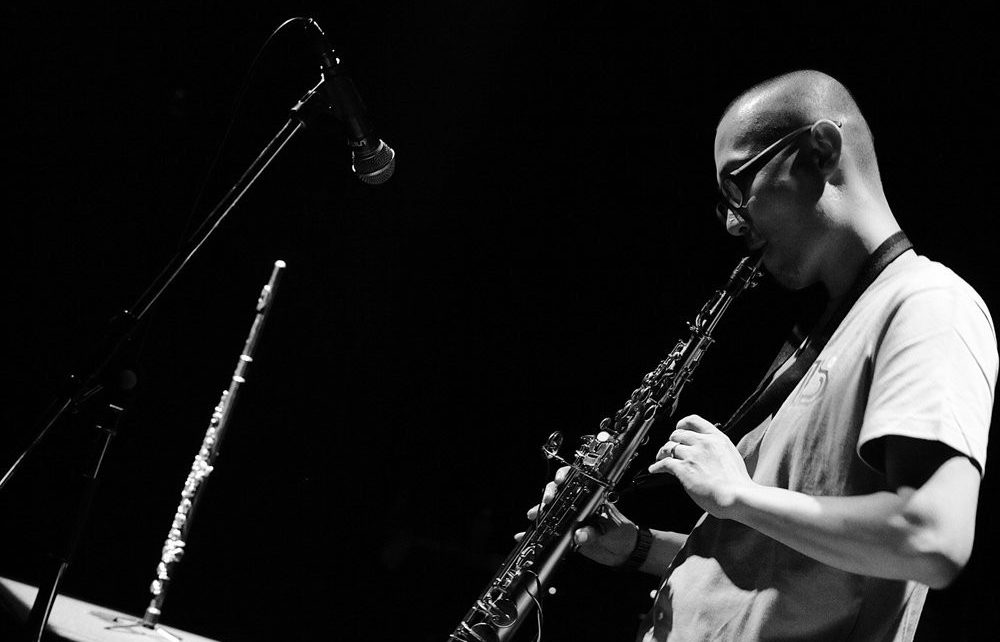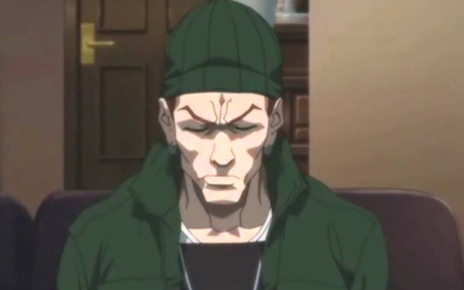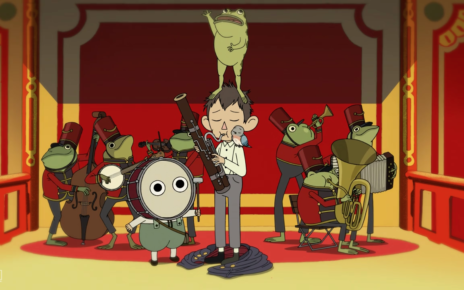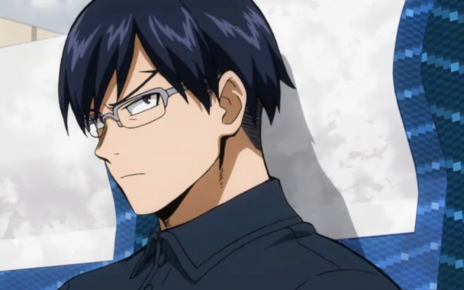Editor’s Note: This week, your second-favorite The Dot and Line co-editor and all-around snuggly media boy Eric is off galavanting in the wilds of Utah. (You can follow along at #EVBhikesUT, coming soon to an already overburdened social media stream near you.) So you know what that means: NO PARENTS! NO RULES! NO PARENTS! NO RULES! I.e., your obvious favorite The Dot and Line co-editor and even snugglier media boy can publish this piece, which has, like, very little to do with animation? (But just enough!) I don’t care though, because it’s Important. #JHMhijacksDnL has begun!
Holy hell, do you need to listen to this album.
You probably wouldn’t know how badly you need to, though, because the Record Reviewing Industrial Complex, led, I guess, by a bunch of snobby folks with Pitchforks and also maybe the curmudgeonly wit of Robert Christgau, somehow failed almost entirely to notice its existence. There’s a generous breakdown of the album at The Music Ninja (???) and a nod at Hypebeast (…), but otherwise we’ve pretty much just got crickets. Luckily, a cartoons and animation website is here to remedy this.
The newly-deified god Uyama Hiroto (hereafter referred to merely as Uyama Hiroto or some derivative therefrom) is the friend and longtime collaborator (and maybe protégé, but I declined to ask, uh, Reddit to fact-check) of a fellow producer, the god Nujabes (hereafter referred to merely as Nujabes). The founder of the Hydeout Productions label, Nujabes was the jazzy leading light of the Japanese hip hop scene before his death, at 36, in a 2010 traffic collision.
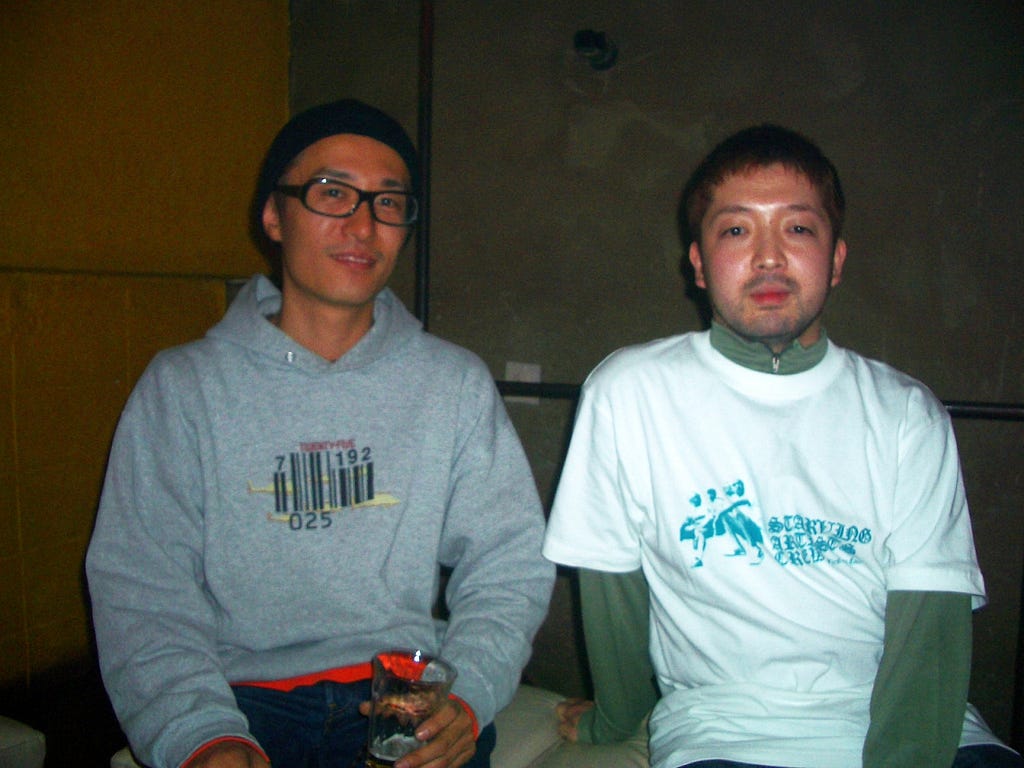
Nujabes, né Seba Jun, is a cult favorite of lovers of both anime and luscious beats, having composed a good number of fan favorite tracks from the soundtrack to noted music freak and Big Jazz Boy Shinichirō Watanabe’s glorious Samurai Champloo, not to mention its theme song. He is as well known, at this point, as he is well loved.
So I’m skipping the explainer track and dropping the needle, if you will, straight on the single. The jam. The anthem.
That would be Uyama Hiroto, the saxophone-slinging multi-instrumentalist and producer whose third album, Freeform Jazz, came out last fall. Hiroto has been killing it since he began working with Nujabes, even before the latter produced the former’s first album, 2008’s A Sun of the Sun—a lovely work that came straight from its producer’s playbook, if with a bit more focus on jazz and a heavier hand manning the wind chimes. 2014’s Freedom of the Son got even jazzier, pushed just a bit further, and felt, in its way, like both a bookend to Nujabes’s life and Hiroto’s first significant step toward a career fed not by the loving hand of the master but by that of an apprentice on the cusp of his own transcendence.
And this one? Reader, it is perfect. (Well, you might not like a single minute-long, Ornette Coleman–channeling track, but seriously, go gripe to someone else.) It is everything powerful about Nujabes’ stunning blend of jazz, soul, hip hop, traditional Japanese music, and overwhelmingly relentless Pharoah Sanders influences, distilled and injected with steroidal ambitions. The son has taken a step away from the sun, and out of a long shadow. Uyama Hiroto has finally eclipsed Nujabes.
It’s impressive enough that a figure as unheralded as Hiroto—at least in the U.S.—could one-up the work of an artist as beloved as Nujabes. It’s another thing entirely to do what Hiroto does here. Nujabes’s music, in spite of its composer’s love for jazz and the traditional music of his own country, was always fully situated in the hip hop sphere. This? I’m not even sure I know what to call this. It is jazz, hip hop, and the pentatonics of Japanese classical and folk in equal measure—even though actual rapping, aside from a single collaboration with longtime Hydeout emcee Shing02, is conspicuously absent here—with percussion that is almost overwhelming in its polyrhythmic complexity and precision. It is supple and thunderous at the same time. It is stupidly beautiful.
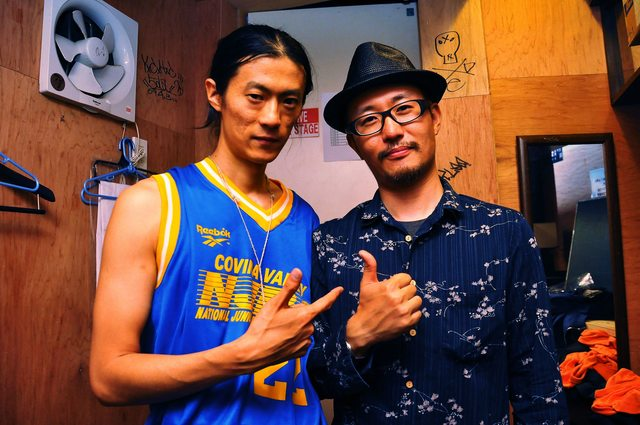
I think we’ve adequately beat up the music critics on failing to give this album its due. The only question now is, where is the man’s anime soundtrack recording contract!?
The songs here might be too complicated to slip onto the OST of most animated series—although if there’s anyone who could pull it off, it’s the man who let Yoko Kanno run wild for Cowboy Bebop. So here’s looking at you, Mr. Watanabe. If you’ve got a project in the works, you know who to turn to for tunes.
But if not, who cares? Kick back and throw this on. Maybe start with my current favorite, “Waltz for Real World,” the latest in Hiroto’s series of gorgeous waltzes. Close your eyes. Your brain will do the rest, animating every soaring sax line and sizzling cymbal. It won’t be able to help itself.
The spirit of Nujabes lives on through Uyama Hiroto, enhanced. Seba Jun would be proud.
Thanks for reading The Dot and Line, where we talk about animation of all kinds. Don’t forget to ❤ this article and follow us on Twitter and Facebook.


